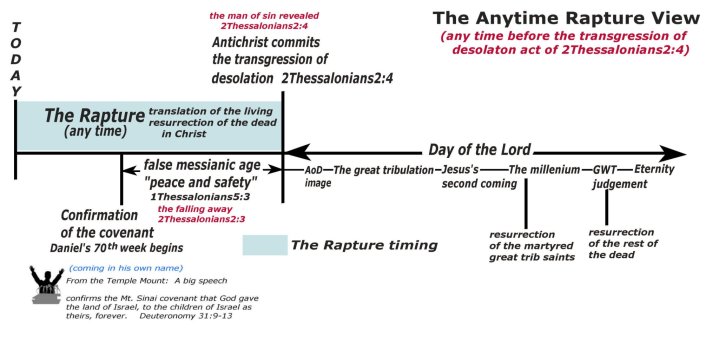Spiritual Israelite
Well-Known Member
There are several passages in the NT which do not indicate any mortal, unbelieving survivors of Christ's return (Matthew 24:35-39, Luke 17:26-37, 1 Thessalonians 5:2-3, 2 Thessalonians 1:7-10, 2 Peter 3:7,10-12, Revelation 19:17-18) but somehow Zechariah 14 trumps them all?For example.
The NT says this.
Revelation 19:21 And the remnant were slain with the sword of him that sat upon the horse, which sword proceeded out of his mouth: and all the fowls were filled with their flesh.
The OT says this.
Zechariah 14:12 And this shall be the plague wherewith the LORD will smite all the people that have fought against Jerusalem; Their flesh shall consume away while they stand
Zechariah 14:16 And it shall come to pass, that every one that is left of all the nations which came against Jerusalem shall even go up from year to year to worship the King, the LORD of hosts, and to keep the feast of tabernacles.
17 And it shall be, that whoso will not come up of all the families of the earth unto Jerusalem to worship the King, the LORD of hosts, even upon them shall be no rain.
18 And if the family of Egypt go not up, and come not, that have no rain; there shall be the plague, wherewith the LORD will smite the heathen that come not up to keep the feast of tabernacles.
Amils, such as yourself, only go by what the NT says here rather than what the OT and the NT combined says here. IOW, per Amil, regardless what Zechariah 14 says, what the NT says trumps it rather than finding a way to square both testaments instead of pitting one testament against the other. As if one testament is more holy writ than the other one. Or as if one testament is holy writ, the other isn't.
Why wouldn't you instead question why all those NT passages teach something different than what you think is taught in the Zechariah 14 passage? Why change what all of those other passages are saying in favor of your interpretation of Zechariah 14 rather than taking a closer look at Zechariah 14 to see why it does not agree with all of those other passages?
All of the passages I referenced are literal, straightforward passages. But, Zechariah 14 is not straightforward like those passages are. It is speaking of the same "day" or time period during which things describe in Zechariah 12 and 13 are fulfilled and we know that both Zechariah 12:10 and Zechariah 13:7 are quoted with a first coming context rather than a second coming context (see John 19:37 and Matthew 26:31). That should tell you something about the time period that Zechariah 14 is related to.
Last edited:


